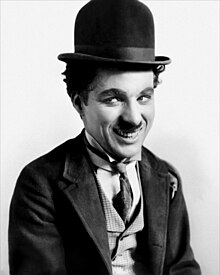Charlie Chaplin right of publicity case
Chaplin v. Amador, a lawsuit brought by actor Charlie Chaplin against an imitator named "Charlie Aplin," set an important legal precedent that a performer's persona and style, in this case Chaplin's "particular kind or type of mustache, old and threadbare hat, clothes and shoes, a decrepit derby, ill-fitting vest, tight-fitting coat, and trousers and shoes much too large for him, and with this attire, a flexible cane usually carried, swung and bent as he performs his part," is entitled to legal protection from those unfairly mimicking those traits in order to deceive the public.
[9] He also argued that the defendants' consultation with attorneys before making their "imitation" motion pictures showed that they had acted with fraudulent intent.
"[13] Goldman posited, "Is this so-called king of clowns to be granted special privileges greater than those given to an Edison, Steinmetz, or any other pioneer in fields of progress?"
[17] After the decision, Amador's lawyer declared that his client would give up the name Charlie Aplan, but would otherwise continue producing films as before, without changing his makeup.
"[20] By focusing on the ample evidence of fraudulent intent, rather than the objective legal principle, the court was able to affirm Chaplin's rights in his persona without addressing whether the result would be the same in a setting involving less deliberate deception.
